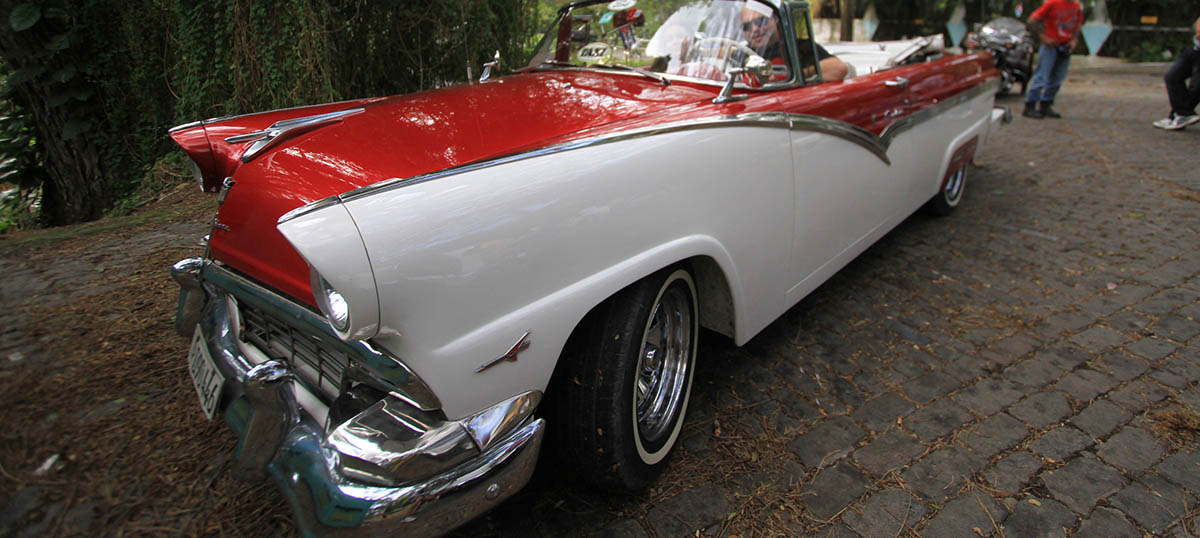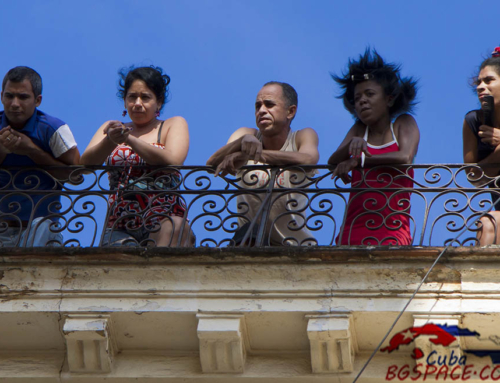The word “subway”, “tube” or “metro” in Cuba is almost unknown. The way to get around the 3-million capital is on foot, by bus, taxi, or shared taxi. The last is very popular among the locals and well-informed tourists since it’s super cheap – a 5-6 km ride will cost you between 0.10 – 0.15 EUR. Just to compare – a regular taxi will cost you 10 USD for the same distance. Once you catch a shared taxi you need to act more Cuban – after all the locals earn a 15 USD salary.
Most of the shared taxis are old Chevrolets and Cadillacs, 90 % of which had their engines changed, and all of this thanks to the handy Cubans who not only have state jobs and private ones but are also professional mechanics.
The taxis are paid in Convertible Pesos /CUC/ where 1 CUC is equal to 1 USD.
Public transport is the most popular transport in Cuba – it costs 1 Cuban Peso/around 0.03 EUR/. Its drawback is that it is too crowded during rush hours – I have even seen people riding on the bus doors.
In the province, however, especially in Santiago de Cuba there are often no buses. You might see trucks instead that cost you the same amount of money. Travelling on a truck is also quite a unique experience unless it’s every day…
A great amount of the fuel in Cuba is imported from Venezuela. All in all, Cuba is so connected to Maduro that if he decides to deprive the Cubans of the resource they will have not only no transport but also no electricity. Cuba has the range of mountains of Sierra Maestra, but it lacks fast rivers to produce energy. Therefore, electricity is generated only through fuel. The minimal quantities of oil that Cuba extracts are definitely not enough to meet the needs of its 11-million population so in exchange Cuba processes Maduro’s oil in refineries built by the USA in 1959.
Private cars can be rarely seen in the Cuban streets, although a lot of Chinese cars mostly by the brand Jeely have overtaken Cuba. The most fascinating vehicles you will get to encounter there are self-made cars and carts constructed from several other cars.
Hitchhikers are also a common view in Cuba. By the way, according to Cuban law if you are a military man driving a departmental vehicle you are obliged to stop at particular spots and give your colleagues a ride. The same goes for state workers. The registration number of private cars always starts with a “P”, of state cars – with “B”, and of rented cars – with T.
Car-rent in Cuba
It is quite tricky to rent a car in Cuba although it’s not impossible.
First you need to confirm your booking pretty much in advance since there are not enough cars. The price depends on the period of time, but I would say for Cuba it is quite expensive /information from 2019/. The maximum for your car-rent period is 15 days. The insurance is between 70 and 120 USD per day. I have stumbled upon completely false information that if you leave your rental car in the street they will take it to pieces. This is complete nonsense! I suppose the people who wrote this have paid Cuba a 10-day all-inclusive visit… Cubans might be poor but they are intelligent and they are definitely not savages! What they know for sure is if they get caught, and this will happen since everybody knows everything around here, they will lie in prison for life… Instead, they would try to “steal” your money by being polite, well-mannered, and responsive. Actually, they are often like this without demanding something in return.








